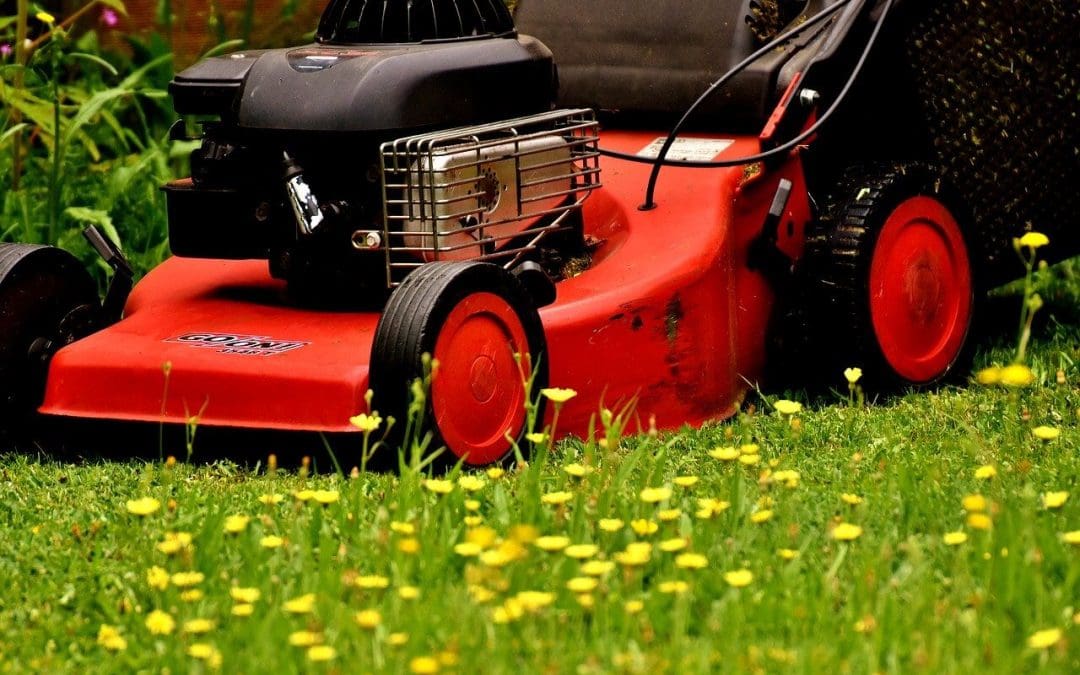Summer can be tough on your lawn. Between the heat, the foot traffic, and the occasional dry spell, it’s easy for grass to get stressed. But a healthy lawn in the summer isn’t out of reach—it just takes the right habits and a little consistency. If you’re dealing with dry patches, invasive weeds, or fading color, a few straightforward summer lawn care changes can help your yard stay green and strong through the heat.
Water Smart, Not Just Often
One of the biggest mistakes people make in the summer is watering too often but not deeply enough. Shallow watering encourages weak, shallow roots. Instead, aim for a thorough soak a couple of times a week, preferably early in the morning before the sun gets too strong. That gives time for the water to sink in and reach the roots without evaporating.
If your lawn still looks thirsty despite regular watering, check your sprinkler system for gaps. Some spots might not be getting hit at all, and that can lead to uneven growth or dry patches.
Mow the Right Way for Summer Lawn Care
Cutting your lawn too short in summer does more harm than good. When you mow, raise the blade and leave the grass a bit taller. Taller grass helps shade the soil and holds moisture better, keeping the roots cooler and more protected. Also, always mow with sharp blades. Dull blades tear the grass, making it more vulnerable to heat stress and disease.
Try not to mow during the hottest part of the day. If you can, mow in the early morning or late afternoon when temperatures are lower.
Feed Your Lawn—But Carefully
Grass needs nutrients, especially in summer when it’s growing fast and dealing with stress. A slow-release fertilizer can give it the boost it needs without overwhelming it. Just be careful not to overdo it. Too much fertilizer—especially in high heat—can burn the grass and do more damage than good.
If your lawn already looks stressed or dry, it’s usually better to wait until temperatures ease up before applying anything. Read the instructions on your fertilizer and follow the recommended amounts for summer use.
Stay Ahead of Weeds
Weeds grow fast in the summer, especially if your lawn is thin or under stress. Keep them under control with spot treatments that target weeds without hurting your grass. You can also pull them by hand, especially after watering or rain, when the soil is soft.
A thick, healthy lawn naturally chokes out most weeds. So the more you focus on overall lawn health, the fewer weed problems you’ll have later.
Aerate if the Soil Feels Hard
If your lawn gets a lot of foot traffic, the soil can become compacted. This makes it tough for water and nutrients to reach the roots. Aeration helps loosen things up and lets the grass breathe.
Summer isn’t always the best time for heavy aeration, but if your soil is rock hard and water runs off instead of soaking in, a light round of aeration can help. Just don’t overdo it in the heat.
Let the Clippings Work During Summer Lawn Care
After mowing, it’s usually best to leave the clippings on the lawn. As they break down, they return valuable nutrients to the soil. This process, known as grasscycling, also helps retain moisture and reduces the need for extra fertilizer. Despite what some people think, it doesn’t cause thatch buildup, so there’s really no downside.
Frequently Asked Questions on Summer Lawn Care
How often should I water my lawn during summer?
Two to three times a week is usually enough. Focus on deep watering so the roots grow stronger and deeper.
What time of day is best for watering?
Early morning—between 6 a.m. and 10 a.m.—is ideal. It gives the water time to soak in before the heat of the day.
Is it okay to mow during a drought?
Yes, but take it easy. Raise the blade and mow less frequently. Avoid cutting when the grass is extremely dry or brittle.
Can I fertilize in the middle of summer?
You can, but only with the right product and under the right conditions. Use a slow-release formula and avoid fertilizing during extreme heat or drought.
How do I know if my lawn needs aeration?
If water is running off instead of soaking in, or if the soil feels very hard, aeration could help. Compacted soil limits root growth and weakens the lawn over time.
AAA Professional Home Inspectors offers home inspections in Kentucky and Southern Indiana. Contact us to schedule our services.

